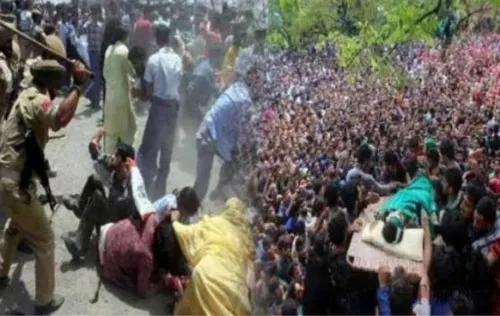The unrelenting military and police siege imposed by the Hindutva-led Indian government since August 05, 2019, continues to inflict heavy casualties on the daily lives of people in occupied Jammu and Kashmir.
A report released by the Research Section of Kashmir Media Service highlighted the violation of international law by the BJP-led Indian government in the occupied territory, revealing that Indian troops, paramilitary and police personnel have martyred 859 Kashmiris, including seventeen women, during this period. Most of these killings occurred in fake encounters and extra-judicial manner under the guise of so-called cordon and search operations.
The report noted that many of the victims were falsely labeled as mujahideen or over-ground workers of mujahid organizations after being picked up from their homes. Consequently, these extrajudicial killings have left 67 women widowed and 184 children orphaned. Additionally, the report highlighted the arrest of at least 23,210 individuals, including Hurriyat leadership, political activists, women, journalists, human rights defenders, students, and young boys. Furthermore, Indian forces damaged 1116 houses and structures, while 133 women were molested or disgraced during this period.
The Hindutva BJP/RSS regime’s harsh policies extend to press censorship in Indian illegally occupied Jammu and Kashmir, as evidenced by the recent arrests of noted Kashmiri journalists such as Irfan Meraj, Asif Sultan, Sajad Gul, and Majid Hydari.
Moreover, human rights activist Khurram Parvaiz, head of the Kashmir Coalition of Civil Society (JKCCS), remains illegally detained in Tihar jail in India, illustrating the ongoing repression of human rights and media freedoms in the region.
In contrast, 176 Indian forces, including army, paramilitary, Border Security Forces, police personnel, and others, have committed suicide since 2019 in the territory.
Political experts and analysts have highlighted the BJP’s agenda to suppress political dissent and silence voices advocating for human rights and the deteriorating situation in the territory since the abrogation of Article 370. They emphasized the increased victimization of political activists and journalists in IIOJK and called for global media organizations to intervene and support independent journalism in the occupied territory.—KMS










